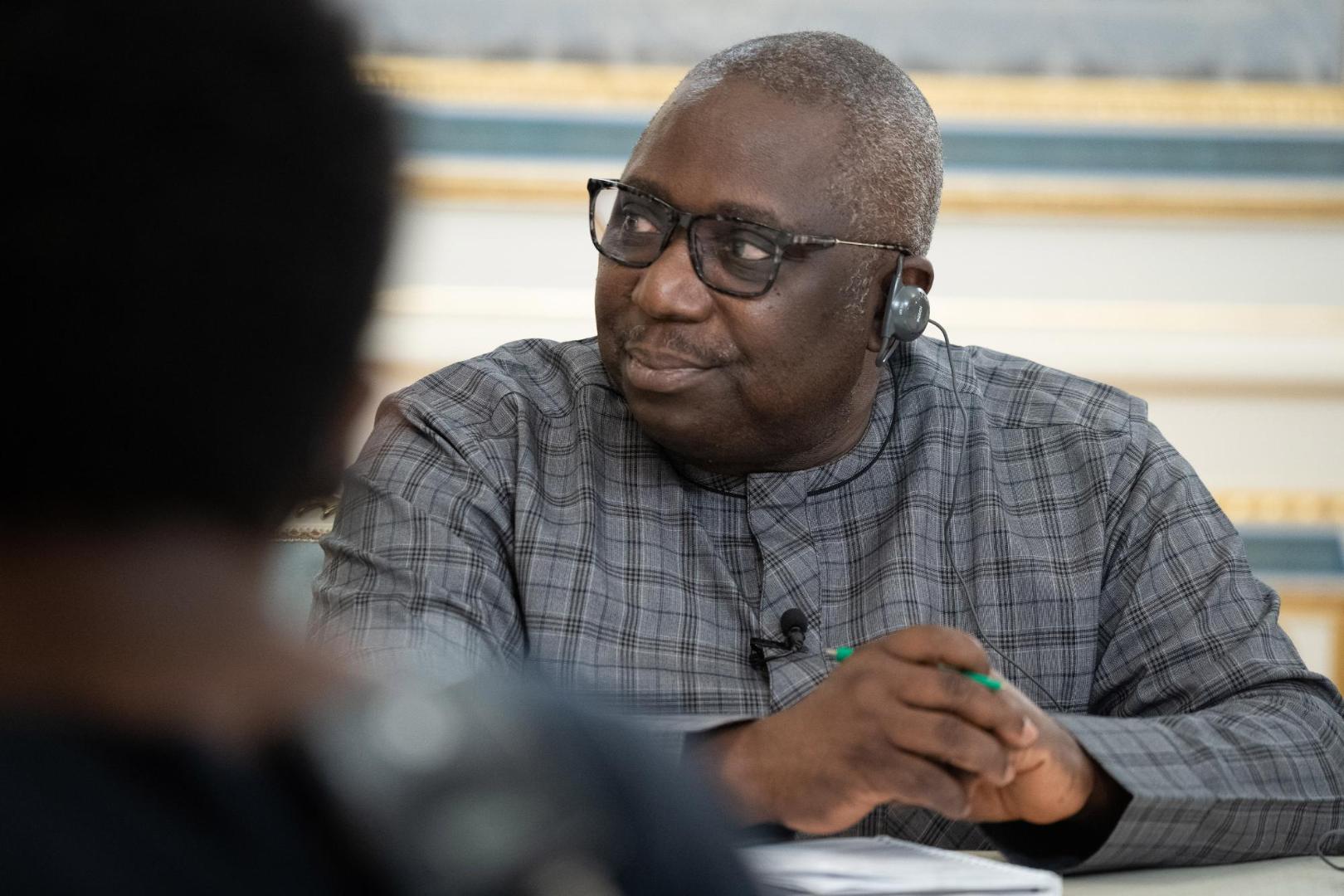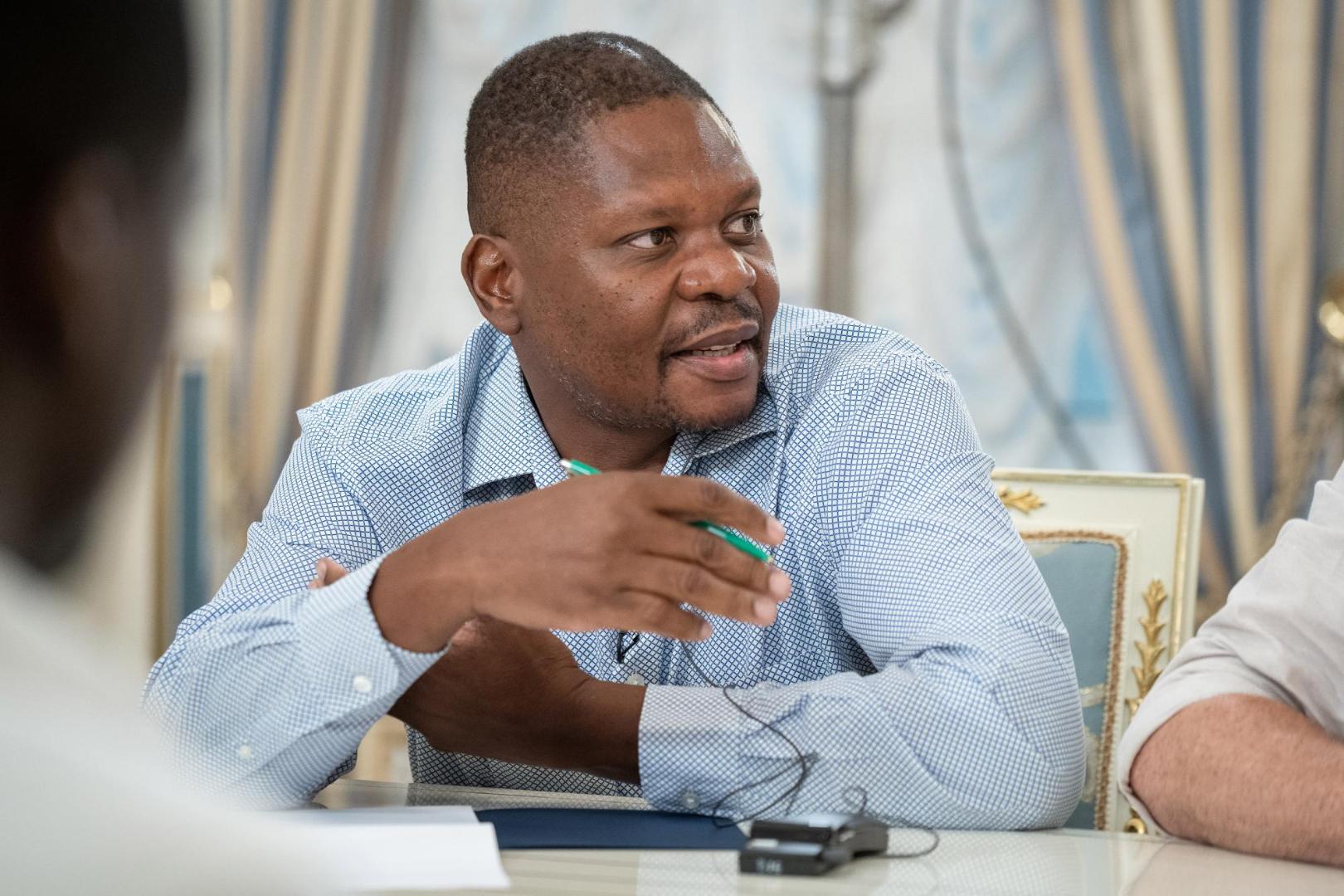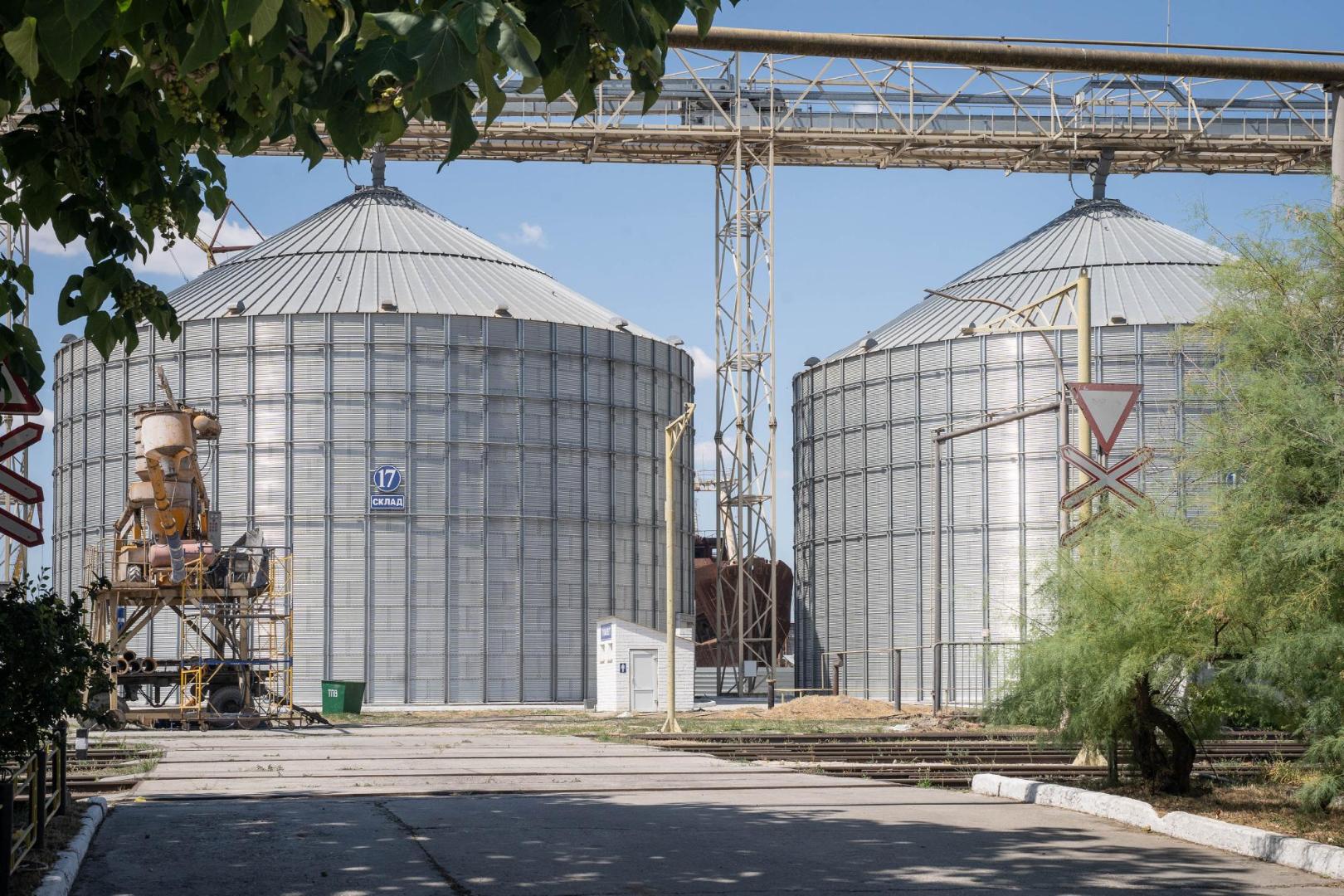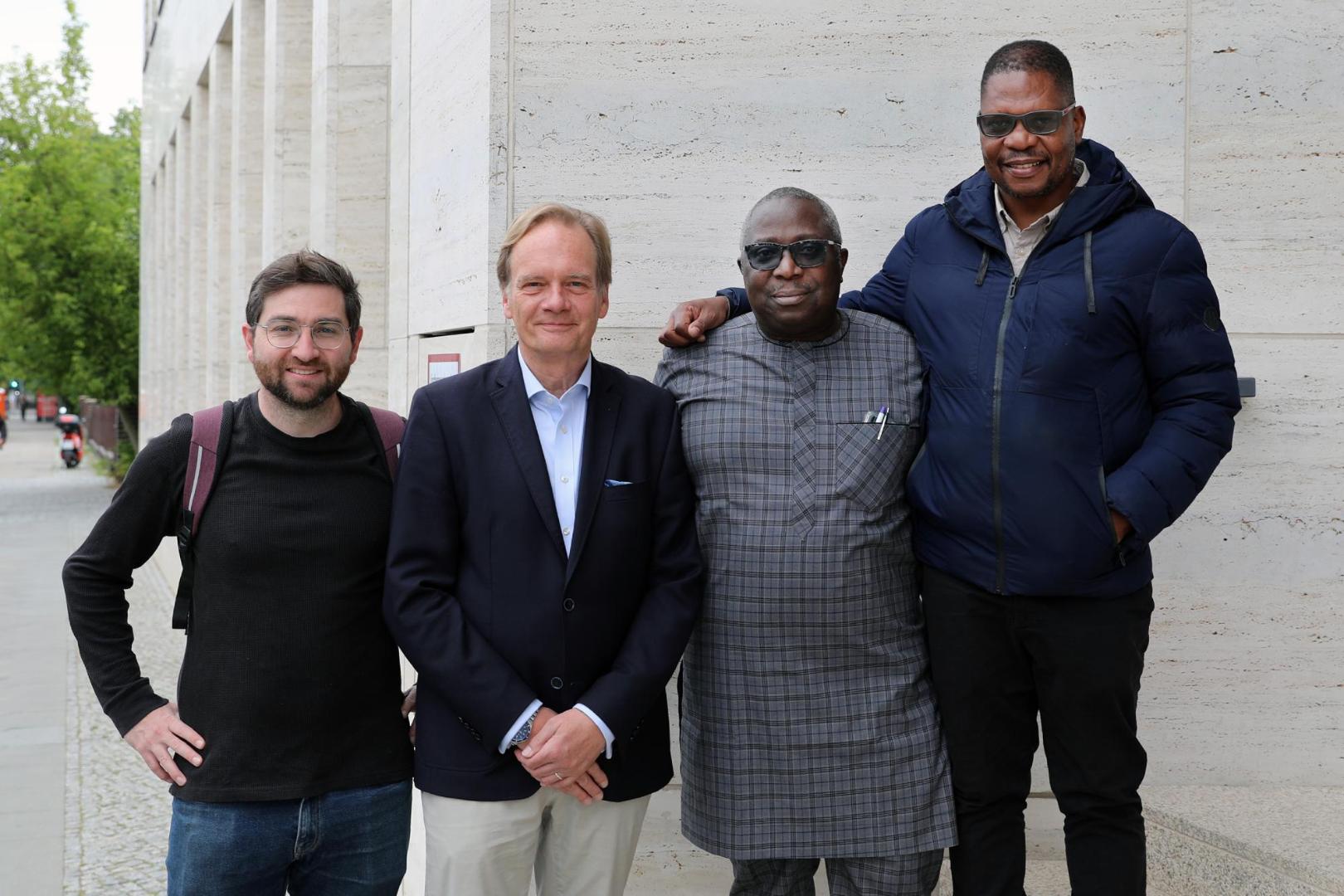The mission took the group not only to Kyiv, but also to field visits in Bucha, Odessa, Mykolaiv and Kerson. They spoke to Ukrainian President Volodymyr Zelensky and First Lady Olena Zelenska, as well as survivors of the war, farmers from the liberated territories and others affected. Experiencing the war for themselves will enable them to report more effectively and to better understand the impact of the war on Ukraine and Africa, the journalists said.
Russia deliberately spreads misinformation in Africa through structured campaigns, especially on social media. This involves one-sided reporting and the large-scale dissemination of lies as well as incorrect anti-Ukrainian and anti-Western propaganda. Thereby, Russia presents itself as the victim of the war. Against this background, the idea of African journalists visiting Ukraine was born out of a conference on Russian propaganda and disinformation, organised by the Media Programme Sub-Saharan Africa of the Konrad-Adenauer-Stiftung in 2022 in Nairobi, Kenya. Media professionals from Ukraine, Russia, Georgia and Sub-Saharan-Africa discussed how the Russian narrative about its war against Ukraine can be countered. The discussions, exchanges of experience and networks created amongst journalists from both continents led to more factual reporting on the Russian war against Ukraine in several Sub-Saharan African media outlets. The recent field trip of the African journalists to Ukraine intended to further enhance this trend. The visit to Ukraine was complemented by talks at the Konrad-Adenauer-Stiftung in Berlin and Warsaw. The cooperating partner and organiser was the Kyiv-based Public Interest Journalism Lab.
The exchange between President Zelensky and the African journalists took place at a crucial time just after Russian President Putin declared that Russia would not extend the so-called grain deal (Black Sea Grain Initiative negotiated by Turkey the UN and Russia in July 2022), which ensured that Ukraine could export its grain from three of its southern ports in the Black Sea via the Bosporus. This is of particular importance for the African continent, as it is highly dependent on grain imports. In 2021, African countries imported 13 million tonnes of agricultural products valued at $3.8 billion by Ukraine.[1] The halt of grain exports in the first year of the war and the limited exports by Ukraine as well as the increased world market price for grain caused by the Russian invasion of Ukraine resulted in food insecurity in several parts of the continent. In their conversation with President Zelensky the journalists brought in the African perspective and made clear how crucial these developments are for several African countries. It was mentioned that this has the potential to become a sensitive issue for some African governments, who face elections in these troubled times of high living cost and food shortages. One journalist from the delegation additionally warned of a worrisome scenario: Russia could offer grain to African governments in need linked to political conditions.
Ukraine seeks to strengthen relations with the African continent. The exchange between President Zelensky and journalists illustrates this effort and the growing perception of the continent as an important player. There are plans to open more Ukrainian embassies to enhance the Ukrainian-African dialogue. According to the journalists from Nigeria and South Africa, Ukraine needs to improve its understanding of the African continent in order to successfully counter the Russian narrative of the war. Even though many African elites are pro-Russian, there is a growing awareness among the population of who is to blame for the war.
[1] Center for Food and Land Use Research at Kyiv School of Economics (2023): The African Countries and Ukraine Partnership in Agriculture. General Overview. Page 3. Online available at: https://kse.ua/wp-content/uploads/2023/03/The-African-Countries-and-Ukraine-Partnership_-General-Overview.pdf [last accessed: 24st of July 2023]









